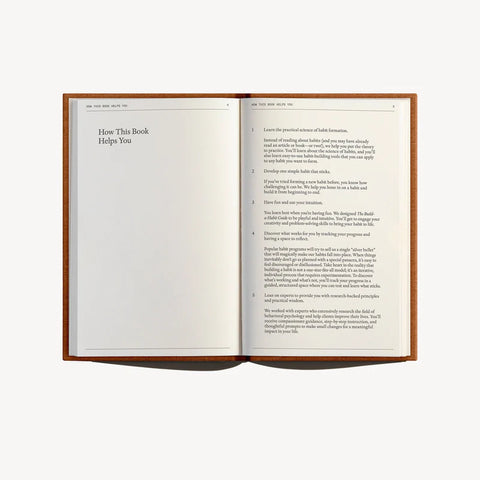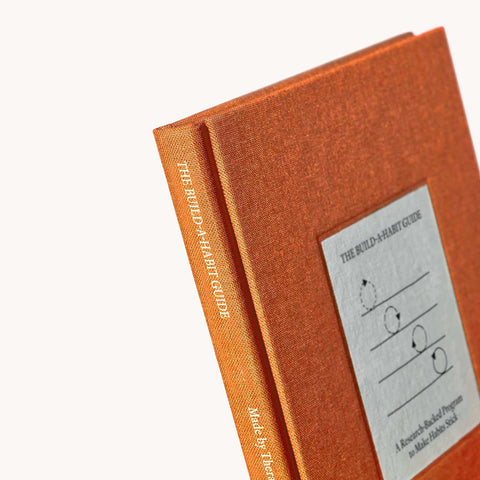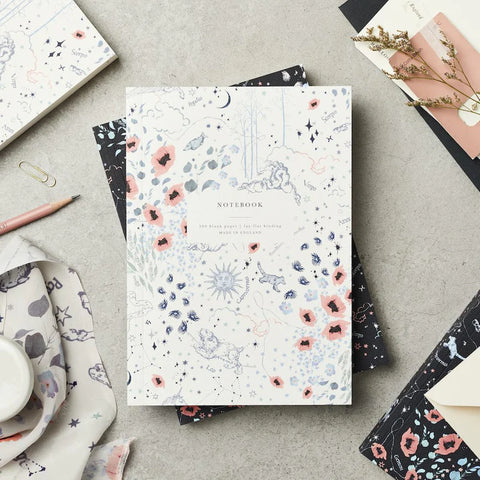Therapy Journal and Mindfulness: A Powerful Combination

Have you ever considered how to actively enhance your mental well-being and nurture self-awareness? If yes then you're in good company. Start your healing journey by learning about the art of diary writing and how to journal efficiently for better mental health.
Often maintaining your mental health is not an easy task, sometimes, it requires some extra effort or support to make progress. Additional support during your healing process can manifest in various ways, including therapy, maintaining a diary, engaging in therapeutic journaling, or embracing mindfulness techniques. The encouraging aspect is that these practices can be seamlessly integrated into your daily life, contributing to a smoother journey toward improved mental health.
Let's start with a small step: understanding therapy, journaling and mindfulness.
What exactly are therapy journaling and mindfulness?
Therapy journaling is the practice of diary writing your thoughts, emotions, and experiences, providing a secure arena for self-exploration and gaining insights into your feelings and behaviours.
And, mindfulness encourages you to remain entirely present, observing your thoughts and surroundings without judgement, fostering increased awareness and emotional self-regulation.
These potent tools empower you to seize control of your emotional and psychological health, cultivating a deeper understanding of yourself and equipping you to confront life's challenges with enhanced resilience and self-compassion.
Journals like Therapy Notebooks Build - A - Habit Guide Notebook and Therapy Notebooks The After-Trauma Notebook are great options to start your healing journey for your overall wellness.

Therapy Journaling and Mindfulness: In Brief
Therapy journaling serves as a valuable practice where individuals regularly write down their thoughts, emotions, and experiences. It is a tool for self-reflection, emotional expression, and personal growth. Engaging in therapy journaling creates a secure, private space for exploring inner thoughts and feelings, akin to having a confidential conversation with oneself and recording it on paper.
Through this process, individuals gain a deeper understanding of their emotional landscapes, identify recurring behavioural patterns, and gain insights into thought processes. Therapy journaling often complements therapeutic approaches to enhance their benefits. However, it can also stand alone as a practice for self-improvement and self-help.
Mindfulness, conversely, is a mental practice focused on complete presence in the current moment. It entails intentional, non-judgmental concentration on thoughts, emotions, physical sensations, and immediate surroundings. Mindfulness techniques encompass meditation, mindful breathing exercises, and mindful observation.
The primary aim of mindfulness is to cultivate heightened presence, alleviate stress and anxiety, and promote emotional self-regulation. It encourages individuals to observe thoughts and feelings without reacting impulsively, ultimately fostering inner calm and equilibrium. Mindfulness is applicable to various facets of life, from everyday activities to challenging situations.
Although therapy journaling and mindfulness have distinct approaches and purposes, they share common benefits for enhancing mental well-being. Therapy journaling assists individuals in exploring their inner selves, nurturing self-awareness, and facilitating emotional expression. In contrast, mindfulness promotes present-moment awareness and bolsters emotional self-regulation.
When integrated, these practices synergize, strengthening an individual's capacity to manage emotions, alleviate stress, and make informed life decisions. The advantages of therapy journaling and mindfulness extend beyond self-improvement, providing valuable tools for coping with life's challenges and fostering a healthier and more balanced life.

The Benefits of Therapy Journaling and Mindfulness
Let's explore the advantages of combining therapy journaling with mindfulness, uncovering their transformative impact on self-reflection, and emotional regulation, and promoting a healthier, balanced life.
Therapeutic journaling serves as a potent method for articulating your thoughts and emotions, akin to a personal dialogue with yourself, captured on paper. Conversely, mindfulness directs your focus to the present moment, akin to taking a deep breath and immersing yourself entirely in the current experience.
Therapy journaling enhances self-awareness, deepening your understanding of your emotional landscape and behaviours. It fosters a closer connection with your inner self. Mindfulness equips you with tools for maintaining composure and inner equilibrium, acting as a mental shield against stress and anxiety. When practised together, a synergy emerges.
This integration of therapy journaling and mindfulness empowers you to manage challenging emotions and stress more effectively. It's like having a dynamic duo supporting your well-being. Engaging in these practices enhances your awareness of thoughts and emotions, empowering you to make well-informed decisions in life.
As a result, these approaches play a significant role in bolstering your mental well-being. If you want improved emotional health and greater self-compassion, consider therapy journaling and mindfulness as your secret allies.
- Journaling for Self-Discovery:
Therapy journaling serves as a pathway to gain insights into your thoughts and emotions, fostering personal growth through self-reflection. It's a journey inward to better understand yourself.
- Mindfulness for Stress Reduction:
Explore this technique for effectively managing stress and anxiety through mindfulness. Uncover strategies to effortlessly incorporate mindfulness into your everyday routine, fostering a tranquil and harmonious state of mind.
-
Therapeutic Journaling for Healing:
Diary writing can aid in processing trauma and emotional wounds, becoming a powerful tool for emotional recovery and growth, especially when combined with professional therapy.
- Mindfulness Meditation
Meditation enhances your diary writing practice, while guided mindfulness journaling exercises help you stay present and aware.
- Tracking Progress and Goal Setting:
Use your journal to monitor your mental health journey, setting mindful goals and intentions to measure your growth and stay on the path to improved well-being.
Give them a try, and you'll discover their remarkable synergy!
How to Journal and Practise Mindfulness
Starting with your journaling and mindfulness journey may initially seem daunting, but remember to take it one step at a time. Here are three simple steps to start with, And it will gradually become more manageable
1. Set Aside Time
Find a quiet, comfortable place where you can focus without distractions. Dedicate a few minutes each day, to begin with—no need for a lengthy commitment. Gradually, you can increase the time as you become more comfortable.
2. Choose Your Tools
Grab a notebook and pen for journaling; it doesn't have to be fancy. For mindfulness, decide whether you'd like to start with guided meditation apps, deep breathing exercises, or mindful walks. Experiment to find what suits you best.
A simple journal like The Therapy Journal by Therapy Notebooks or Katie Leamon
L&L Zodiac Ivory Notebook and Black Pencil Set are great to start with.
3. Begin with Breathing
In your journal, jot down your feelings, thoughts, or anything that comes to mind—no judgments. The key is consistency. Commence your mindfulness journey by initiating slow, deep breaths. Concentrate your attention on the inhalations and exhalations, releasing any lingering concerns or worries. Over time, you'll notice the benefits of self-awareness and improved mental well-being. With these steps, you're on your way to a fulfilling journey of diary writing and mindfulness.
Overcoming the Challenges
Moving ahead of a few common challenges in therapy journaling and mindfulness is a crucial part of your mental health journey. You might face hurdles in maintaining a combined practice, but don't worry. There are strategies for a healing journey that will help you stay consistent and make these techniques a part of your daily life. Many people have found that these techniques transformed their lives for the better.
Community and support are vital in your journey. Seek out therapy journaling and mindfulness groups or communities. Having people who understand and support you can make a big difference in your well-being.
Combining therapy journaling with other therapeutic approaches can be powerful. These practices complement other methods, enhancing your mental health progress. Scientific research and studies back up their effectiveness, providing evidence that they work.
These practices can become second nature with the right guidance. Maintaining consistency over time is essential, to prevent burnout or fatigue. If you want to take your practice further, you can explore mindfulness retreats or workshops that align with your goals.
Lastly, bear in mind the importance of tailoring your mindfulness practice to align with your individual needs and preferences. Your pursuit of improved mental health hinges on discovering what suits you best.
FAQs: How To Journal And Steps For Diary Writing
How can journaling help with anxiety?
Journaling can help manage anxiety by providing a structured way to express worries and identify triggers, fostering self-awareness and emotional regulation
Are there any risks associated with journaling for mental health?
While journaling is generally safe, it may be triggering when addressing traumatic experiences. Seek professional guidance if needed.
How can Diary writing be integrated into therapy sessions?
Therapists may encourage clients to keep therapy journals to track progress, record session insights, and promote self-reflection
What's the role of journaling in processing traumatic experiences?
Journaling can aid in processing trauma by providing a safe outlet for emotions and facilitating healing, but it should be approached with caution and, if necessary, under professional guidance.
CONCLUSION
Therapy journaling and mindfulness serve as valuable companions in your quest for improved mental health. By diary writing and mindfulness of your thoughts and staying present in the moment, you take significant strides toward self-understanding and inner peace.
While challenges may arise, there are effective strategies to surmount them. Additionally, seeking support can prove highly beneficial. These practices harmonise well with other therapeutic approaches and are substantiated by scientific research.
So, continue your diary writing and mindfulness journey, customise it to suit your unique needs, and remember that these tools are here to support your pursuit of a healthier mind every step of the way. Visit The Bubble Wrap for more such journal options and find the one for your specific need. Happy journaling.


